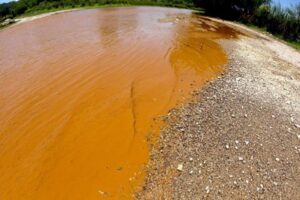
Our latest article, Playing the Long Game: Expediting Permitting Without Compromising Protections, recommends three actions to expedite mine permit processing times without sacrificing analytical rigor: (1) avoid delay caused by insufficient agency capacity; (2) make the legal structure, permitting requirements, and information more transparent and publicly available; (3) use the National Environmental Policy Act process to avoid inefficiency caused by uncoordinated interagency requirements and disorganized data gathering. These tools can promote efficiency without eliminating rigor and without waiting for statutory regulatory reforms. These reforms target unproductive causes of delay in the critical mineral permitting process.
Permit reform should also recognize that some delays are productive. Not every mine permit should be approved as it is submitted. The permit process is the last chance to ensure that mines are built safely and to avoid or mitigate risks to workers, society, and the environment.
Critics of the permitting process often cite controversial projects or permit denials as proof that the permitting system is broken. Although frustrating for mine proponents and investors, some permitting delays may be evidence that the system is working. The environmental analysis required during the permitting process may identify potential issues that would have otherwise escaped consideration. Slower projects may reflect iterative changes to improve the proposed action or minimize impacts.
The possibility of accidents caused by faulty designs is serious. Don’t forget, in 2014, defective tailings ponds at the Buenavista Del Cobre copper mine in Sonora, Mexico released more than 10 million gallons of toxic chemicals into a tributary of the Sonora river, leaving 24,000 people without clean water. Accidents don’t just happen in Mexico. A review of 14 copper porphyry mines in the US (accounting for 90% of US production) found the mines were often associated with water pollution and accidental releases. A permit process that prioritizes speed over analytical rigor could increase the likelihood of these types of accidents.
Permit reform should not create a system of rubber-stamping. Saying “no” to unacceptably risky proposals creates delay, but if it avoids environmental disasters or improves a project, that delay is productive.
